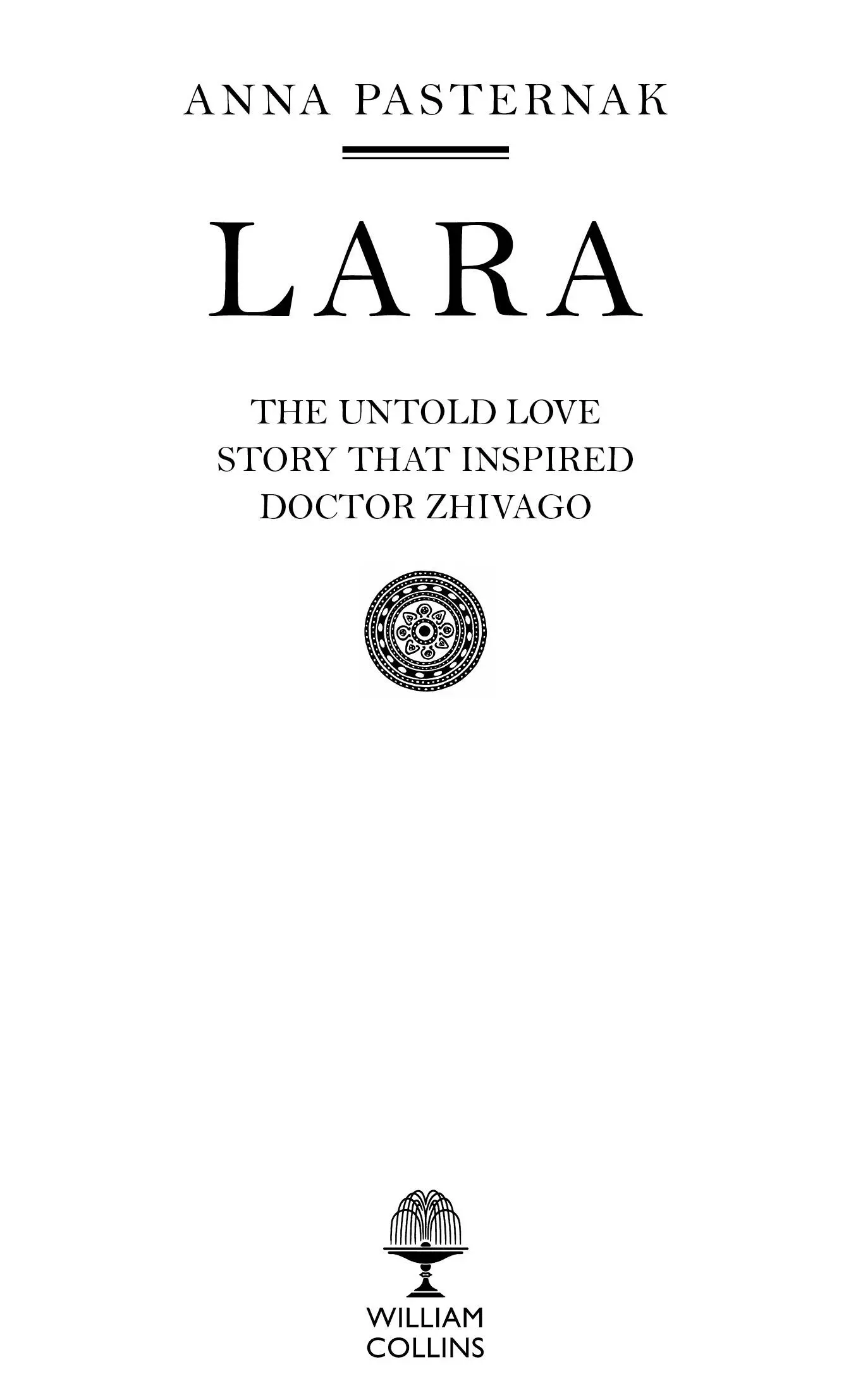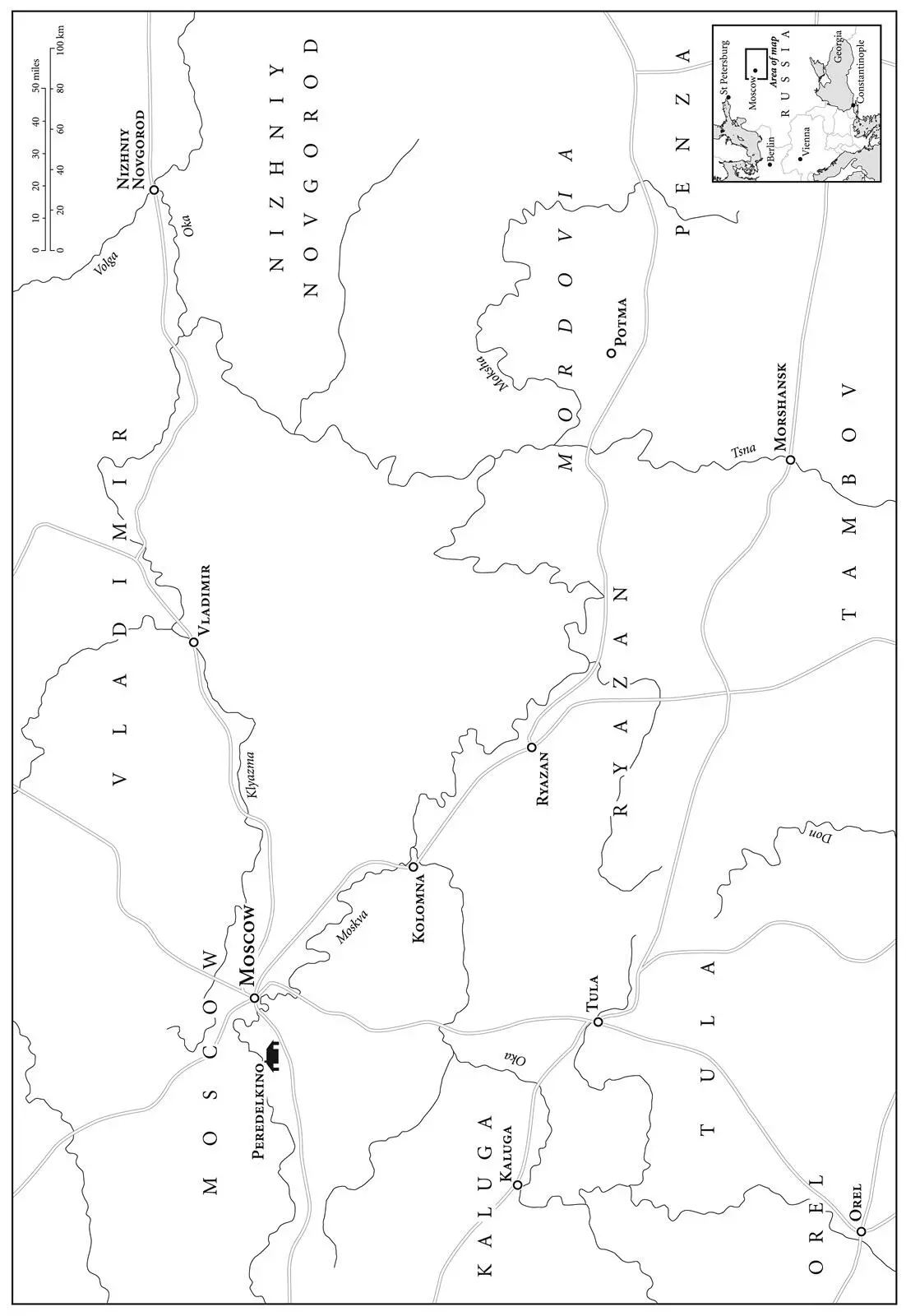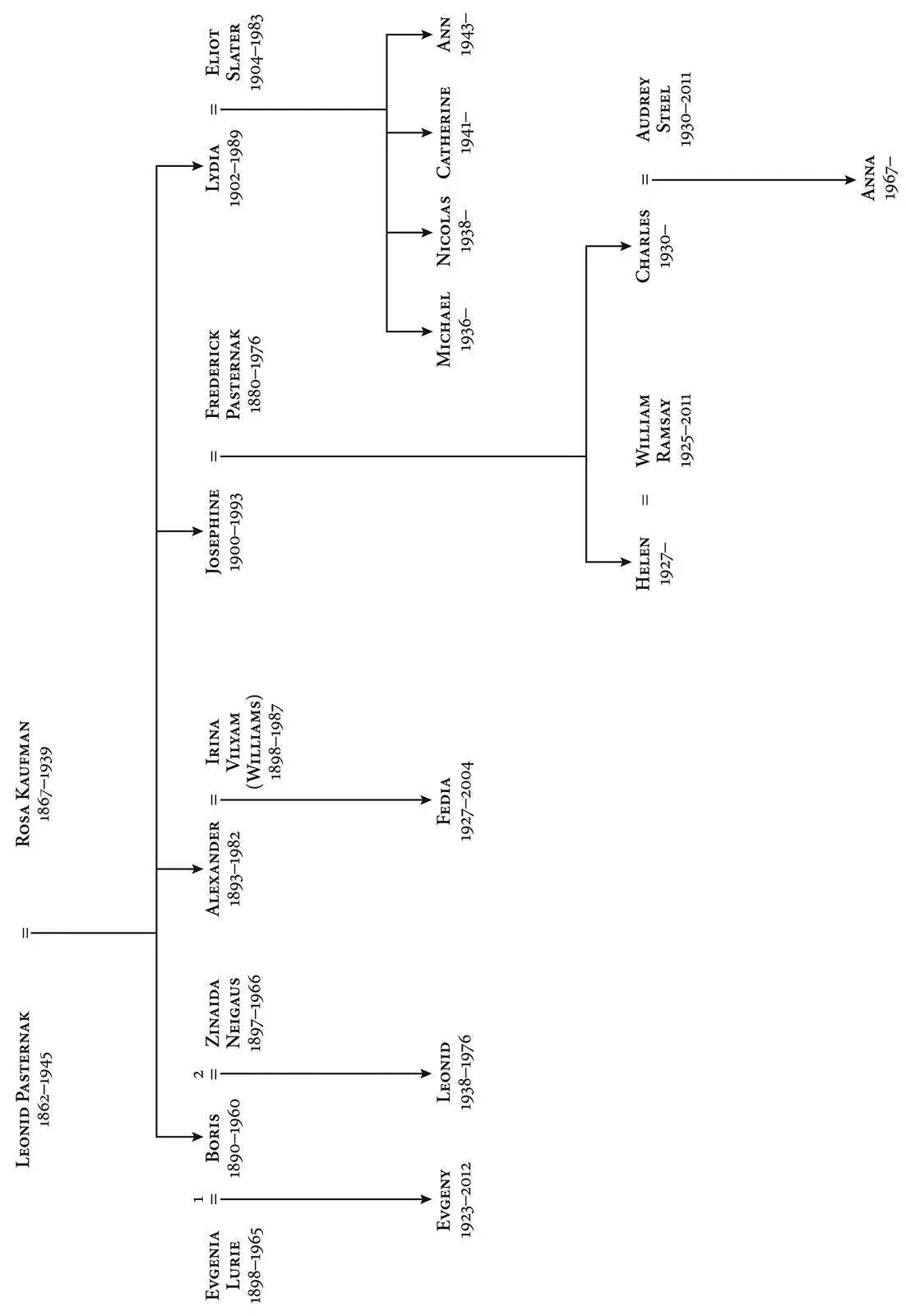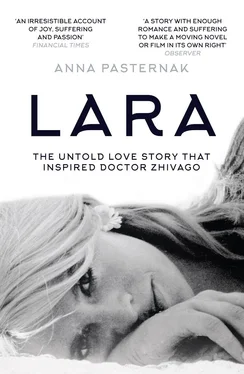
William Collins
An imprint of HarperCollins Publishers
1 London Bridge Street
London SE1 9GF
WilliamCollinsBooks.com
This eBook first published in Great Britain by William Collins in 2016
Copyright © Anna Pasternak 2016
Anna Pasternak asserts the moral right to
be identified as the author of this work
A catalogue record for this book is
available from the British Library
Cover image © Ullstein Bild/Getty
Interior images courtesy of the author unless otherwise attributed
Map and family tree © Martin Brown
All rights reserved under International and Pan-American Copyright Conventions. By payment of the required fees, you have been granted the non-exclusive, non-transferable right to access and read the text of this e-book on-screen. No part of this text may be reproduced, transmitted, down-loaded, decompiled, reverse engineered, or stored in or introduced into any information storage and retrieval system, in any form or by any means, whether electronic or mechanical, now known or hereinafter invented, without the express written permission of HarperCollins.
Source ISBN: 9780008156787
Ebook Edition © August 2016 ISBN: 9780008156800
Version: 2017-03-27
In loving memory of my mother,
Audrey Pasternak
Writers can be divided into two types: meteors and fixed stars. The first produces a momentary effect: you gaze up and cry ‘Look!’ – and they vanish forever. Whereas fixed stars are unchanging, they stand firm in the firmament, shine by their own light and influence all ages equally; they belong to the universe. But it is precisely because they are so high that their light usually takes so many years to reach the eyes of the dwellers on earth.
Arthur Schopenhauer
It is not for nothing that you stand at the end of my life, my secret, forbidden angel, under the skies of war and turmoil, you who arose at its beginning under the peaceful skies of childhood.
Yury Zhivago to Lara, Doctor Zhivago
Cover
Title Page
Copyright
Dedication
Epigraph
Map
Family Tree
Prologue: Straightening Cobwebs
1. A Girl from a Different World
2. Mother Land and Wonder Papa
3. The Cloud Dweller
4. Cables under High Tension
5. Marguerite in the Dungeon
6. Cranes Over Potma
7. A Fairy Tale
8. The Italian Angel
9. The Fat is in the Fire
10. The Pasternak Affair
11. A Beast at Bay
12. The Truth of Their Agony
Epilogue: Think of Me Then
Notes
Select Bibliography
Acknowledgements and Note on Sources
Picture Section
Index
About the Publisher


PROLOGUE
Straightening Cobwebs

It is almost impossible, by today’s standards of celebrity, to comprehend the level of fame that Boris Pasternak engendered in Russia from the 1920s onwards. Pasternak may be most famous in the West for writing the Nobel Prize-winning love story Doctor Zhivago , yet in Russia he is primarily recognised, and still hugely feted, as a poet. Born in 1890, his reputation escalated during his early thirties; soon he was filling large auditoriums with young students, revolutionaries and artists who gathered to hear recitals of his poems. If he paused for effect or for a momentary memory lapse, the entire crowd continued to roar the next line of his verse in unison back at him, just as they do at pop concerts today.
‘There was in Russia a very real contact between the poet, and the public, greater than anywhere else in Europe,’ Boris’s sister, Lydia, wrote of this time; ‘certainly far greater than is ever imaginable in England. Books of poetry were published in enormous editions and were sold out within a few days of publication. Posters were stuck up all over the town announcing poets’ gatherings and everyone interested in poetry (and who in Russia did not belong to this category?) flocked to the lecture room or forum to hear his favourite poet.’ The writer had immense influence in Russian society. In a time of unrest, with an absence of credible politicians, the public looked to its writers. The influence of literary journals was prodigious; they were powerful vehicles for political debate. Boris Pasternak was not only a popular poet hailed for his courage and sincerity. He was revered by a nation for his fearless voice.
From his early years Pasternak longed to write a great novel. He told his father, Leonid, in 1934: ‘Nothing I have written so far is of any significance. Hurriedly I am trying to transform myself into a writer of a Dickensian kind, and later – if I have enough strength to do it – into a poet in the manner of Pushkin. Do not imagine that I dream of comparing myself with them! I am naming them simply to give you an idea of my inner change.’ Pasternak dismissed his poetry as too easy to write. He had enjoyed unexpected, precocious success with his first published volume of poetry, Above the Barriers , in 1917. This became one of the most influential collections ever published in the Russian language. Critics praised the book’s biographical and historical material, marvelling at the contrasting lyrical and epic qualities. A. Manfred, writing in Kniga I revolyutsiya , observed a new ‘expressive clarity’ and of the author’s prospects of ‘growing into the revolution’. Pasternak’s second collection of twenty-two poems, My Sister, Life , published in 1922, received unprecedented literary acclaim. The exultant mood of the collection delighted readers as it conveyed the elation and optimism of the summer of 1917. Pasternak wrote that the February Revolution had happened ‘as if by mistake’ and everyone suddenly felt free. This was Boris’s ‘most celebrated book of poems’, observed his sister Lydia. ‘The more sophisticated younger generation of literary Russians went wild over the book.’ They considered that he wrote the finest love poetry, in thrall to his intimate imagery. After reading My Sister, Life , the poet Osip Mandelstam declared: ‘To read Pasternak’s verse is to clear your throat, to fortify your breathing, to fill your lungs: surely such poetry could provide a cure for tuberculosis. No poetry is more healthful at the present moment! It is koumiss [mare’s milk] after evaporated milk.’
‘My brother’s poems are without exception strictly rhythmical and written mostly in classical metre,’ Lydia wrote later. ‘Pasternak, like Mayakovsky, the most revolutionary of Russian poets, has never in his life written a single line of unrhythmic poetry, and this is not because of pedantic adherence to obsolete classical rules, but because instinctive feeling for rhythm and harmony were inborn qualities of his genius, and he simply could not write differently.’ In a poem written shortly after My Sister, Life was published, Boris bids farewell to poetry: ‘I will say so long to verse, my mania – I have an appointment with you in a novel.’ Still though, he glorified prose-writing as being too difficult. Yet the two modes of writing actually shared an intrinsic relationship in his work, regardless of the genre. In his autobiography Safe Conduct , published in 1931, a mannered account of his early life, travels and personal relationships, he wrote: ‘We drag everyday things into prose for the sake of poetry. We draw prose into poetry for the sake of music. This, then, I called art, in the widest sense of the word.’
Читать дальше
















